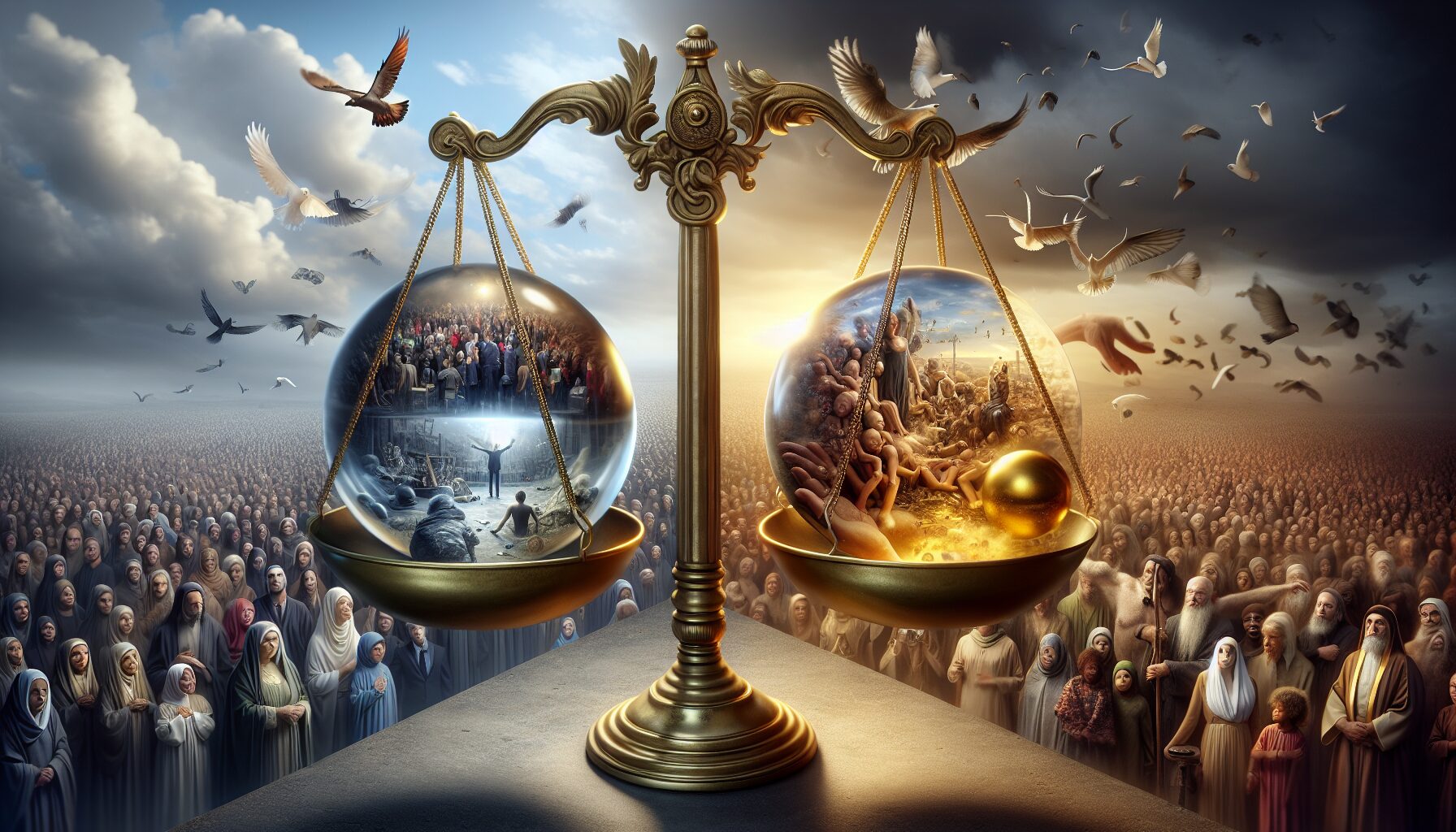One of the oldest adages in the realm of conflict is the notion of neutrality. It might be visualized as a serene lake amidst a forest raging with tempests. However, the idea that maintaining neutrality in the face of injustice is somehow a moral stance is increasingly being challenged. In practice, neutrality often tacitly endorses injustice, for when the scales are uneven, refusing to weigh in does not mean balance, but rather reinforces the prevailing imbalances.
The Allure of Neutrality
“In the end, we will remember not the words of our enemies, but the silence of our friends,” observed Dr. Martin Luther King Jr., a powerful critique of the notion of staying neutral in situations demanding justice. The allure of taking a neutral stance comes from a desire to avoid conflict, perceived as a path of peace and harmony. This is encapsulated in Maxwell Maltz’s statement that, “The price of neutrality is often much more expensive than not making a decision.”
Neutrality promises a haven from the chaos, urging individuals to step aside as opposing forces clash. But in sidestepping these battles, does neutrality truly live up to its ideal of impartiality, or does it become complicit?
When Neutrality Becomes Complicity
Silence in the Face of Oppression
- Historical Context: History is replete with examples where neutrality has served as a veil for complicity. During the Holocaust, the reluctance of many nations to intervene or speak out against Hitler’s regime allowed atrocities to proliferate unabated until it was nearly too late. The U.S. Holocaust Memorial Museum states,
“Indifference and inaction often increase the opportunities for wrongdoing.”
- Contemporary Examples: Consider the ongoing humanitarian crises around the world. When global leaders choose neutrality amid ethnic cleansing or systematic oppression, it’s the marginalized and vulnerable who suffer the consequences.
The Façade of Impartiality in Political Conflicts
Neutrality in complex geopolitical landscapes is often seen as synonymous with impartiality. Yet, when the scales of justice are unbalanced, choosing not to interfere is rarely a neutral act. In the Israeli-Palestinian conflict, for example, international neutrality is often criticized as tacit support for the status quo. Noam Chomsky has argued that this kind of neutrality serves as a de facto endorsement of powerful state actors over oppressed populations.
Why Neutrality is Not Merely Non-Action, But Wrong Action
- The Balance of Power: By staying neutral, one inadvertently supports the more powerful party in a conflict because doing nothing changes the status quo. As Desmond Tutu has famously stated,
“If you are neutral in situations of injustice, you have chosen the side of the oppressor.” (NPR)
- The Ethics of Indifference: In many situations, the moral landscape does not allow for middle ground. Ethicists argue that in conflicts involving fundamental human rights violations, a neutral stance equals complicity.
Case Studies Demonstrating the Fallacy of Neutrality
- The Rwandan Genocide: The international community’s delayed response and initial claim of neutrality in Rwanda led to one of the most horrific massacres in modern history, resulting in an estimated 800,000 deaths. The UN‘s non-interference is now considered a glaring failure.
- Environmental Issues: When political leaders adopt neutral stances regarding climate change, the lack of assertive action favors the continuation of harmful industrial practices, significantly harming the planet.
The Moral Imperative to Act
While neutrality offers a semblance of moral high ground, it often leads to a fertile ground where injustice festers and grows. Acknowledging the pitfalls of neutrality sets the stage for decisive action.
- Active Advocacy: Becoming a proactive advocate for justice enables individuals and nations to constructively confront inequities. When stakeholders take clear stances, they pave the way for systemic changes and policies that foster fairness.
- Building Inclusive Communities: Instead of withdrawing, engaging in dialogue and forming alliances across different communities can catalyze change. This approach promotes understanding and defuses potential conflicts from holding sway unchecked.
Conclusion: Embracing a Stance Beyond Neutrality
Neutrality in the face of injustice is not the absence of choice but rather a choice that too often sides with oppression. As global citizens, recognizing the myth of non-interference can push us towards deliberate engagement and the relentless pursuit of justice. Ultimately, the world benefits not from those who remain oblivious or indifferent, but from those who dare to speak truth to power and confront inequity with courage.
It is time to reframe neutrality as a potential ally of injustice, and instead, courageously promote active interventions that align with the principles of fairness and equality for all. For, as history instructs us and as current events continue to reveal, silence, while reassuring, echoes the despair of those whose voices remain unheard, and whose plights deepen with every moment of averting eyes.
